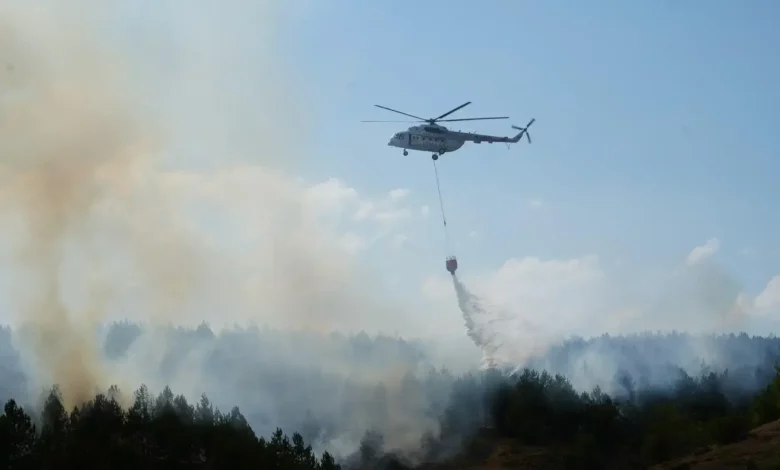
Turkish firefighters returned to the skies on Saturday morning to battle the fires. Helicopters and water bombers, which had been unable to fly earlier due to the wind force, were launched into action. The fires began on Thursday, and because of strong winds of up to fifty kilometers per hour, they spread to the residents’ compounds.
In the report, Turkish Interior Minister Ali Yerlikaya said that 900 people living in five districts had been evacuated at night in Izmir. Testimonies of people who were involved in the conflagration depict smoke coating the atmosphere, effectively painting the sky grey. The air over the city, which is the third largest in Turkiye, still smelled of smoke.
At the moment, two airplanes and eleven helicopters are used to fight the fire, said Ibrahim Yumakli, Turkey’s Agriculture and Forestry Minister, who said that people had nothing to worry about. The fire had caused an ongoing loss of about 1,600 hectares (3,900 acres) of area.
Apart from the fires in Izmir, six other fires are burning the forests in several cities, including northwestern Bolu and western Aydin. At present, more than 300 people are working in the Bozdogan district of the Aegean province of Aydin, with 32 fire buses, 11 water tankers, and five bulldozers used in the operations.
In the Karsikaya district, 16 houses have burned down, and 87 houses and 45 businesses have been evacuated. The fire also threatened an animal shelter, and some parts of the cities, such as Bayrakli and Cigli, were also affected by the smoke.
Researchers state that global warming is to blame for the higher risk, frequency, and increased severity of weather events, such as heat waves, which guarantee the occurrence of wildfires.



